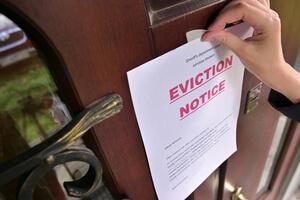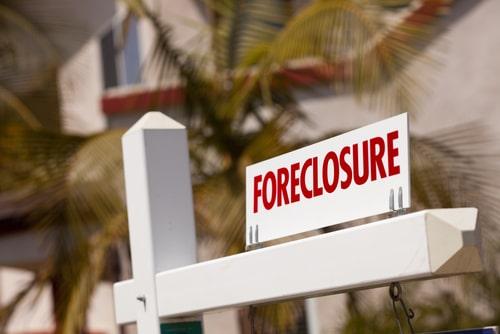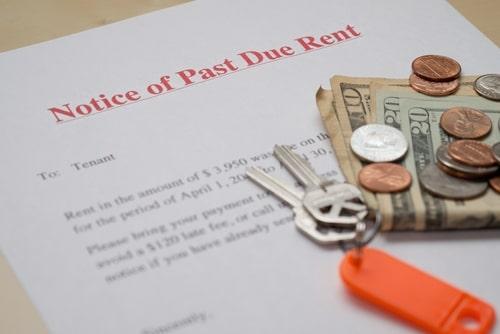1512 Artaius Parkway, Suite 300,
Libertyville, IL 60048
Call for a FREE Phone Consultation
847-549-0000
Video Consultations Also Available
 Spanish
Spanish Cantonese
CantoneseServing Clients Across 7 Illinois Locations
Recent Blog Posts
Can You Really Afford That New Home?
 If you are currently on the hunt for your next home—and possibly your forever home—you are not alone. Since roughly the beginning of the COVID-19 health crisis, home prices have been on the rise, and the market has been historically hot. Experts expect the market to come back closer to normal over the next year or so, but there are no indicators that prices are coming down anytime soon.
If you are currently on the hunt for your next home—and possibly your forever home—you are not alone. Since roughly the beginning of the COVID-19 health crisis, home prices have been on the rise, and the market has been historically hot. Experts expect the market to come back closer to normal over the next year or so, but there are no indicators that prices are coming down anytime soon.
With this in mind, you need to make sure that you fully understand what you are getting into when you submit a bid on a new home. As excited as you might be to start your life’s next chapter, it is critical to know that you can afford the price tag that comes along with it.
Working With Your Lender
The bank or financial institution that ultimately issues your mortgage will largely be responsible for establishing what your budget will need to be for your next home. Your lender will determine your loan amount, term, and interest rate based on a number of variables, including your credit score, tax obligations, and other details. It is not uncommon, however, for a lender to approve a mortgage that the borrower cannot reasonably afford. In fact, these types of approvals were among the primary reasons for the housing market crash in the late ‘00s.
Experts Do Not Expect a Housing Market Slow Down in 2022
 If you have been paying any attention whatsoever to the real estate market, you probably realize that the last two years have been an uphill battle for homebuyers—and first-time homebuyers, in particular. At the very beginning of the COVID-19 health crisis in early 2020, the residential real estate market started somewhat sluggish, but it very quickly took off and has only gotten hotter since then. In late 2020 and through 2021, the housing market continued to sizzle, and existing-home sales hit their highest annual mark in 15 years, according to the National Association of Realtors (NAR).
If you have been paying any attention whatsoever to the real estate market, you probably realize that the last two years have been an uphill battle for homebuyers—and first-time homebuyers, in particular. At the very beginning of the COVID-19 health crisis in early 2020, the residential real estate market started somewhat sluggish, but it very quickly took off and has only gotten hotter since then. In late 2020 and through 2021, the housing market continued to sizzle, and existing-home sales hit their highest annual mark in 15 years, according to the National Association of Realtors (NAR).
The red-hot housing market is a boon for sellers but a bane for buyers. Those who are looking to buy for the first time have been especially affected since they do not have any way to capitalize on the seller’s market before buying a home. Unfortunately, if you have been waiting for the market to cool off a little before jumping in, experts suggest that 2022 might not be your year either.
Courts Did Not See Expected Spike in Evictions After End of Moratorium
 According to information collected by local news outlets, the end of the eviction moratorium in Illinois did not trigger the “tsunami of evictions” in the city of Chicago and Cook County at large that many were expecting. The statewide ban on evictions was initiated in March 2020 following the stay-at-home orders issued by Governor J.B. Pritzker at the beginning of the COVID-19 health crisis. The moratorium was repeatedly extended by the governor until it ultimately came to an end on October 3, 2021.
According to information collected by local news outlets, the end of the eviction moratorium in Illinois did not trigger the “tsunami of evictions” in the city of Chicago and Cook County at large that many were expecting. The statewide ban on evictions was initiated in March 2020 following the stay-at-home orders issued by Governor J.B. Pritzker at the beginning of the COVID-19 health crisis. The moratorium was repeatedly extended by the governor until it ultimately came to an end on October 3, 2021.
A Look at the Numbers
The office of Cook County Chief Judge Tim Evans provided preliminary information to WTTW, a Chicago-area PBS affiliate. According to that data, the total number of commercial and residential evictions in Chicago and Cook County was nearly one-third lower in October 2021 compared to October 2019. October represented the first full month in which there were no restrictions related to the enforcement of eviction judgments in the state.
What You Need to Know About Selling Your Home Through a Short Sale
 Unfortunately, there are many cases where people may experience financial difficulties that make it impossible for them to continue owning a home. To make matters worse, economic downturns have caused many homes to lose value, and this means that a homeowner may be in a situation where they owe more money on their mortgage than their house is actually worth. If you are in this situation, you may be able to complete a short sale, which will allow you to sell your home and find new living arrangements that you can afford. By understanding whether doing so will provide you with benefits, you can prepare to make the necessary arrangements to ensure that you will be able to regain financial stability.
Unfortunately, there are many cases where people may experience financial difficulties that make it impossible for them to continue owning a home. To make matters worse, economic downturns have caused many homes to lose value, and this means that a homeowner may be in a situation where they owe more money on their mortgage than their house is actually worth. If you are in this situation, you may be able to complete a short sale, which will allow you to sell your home and find new living arrangements that you can afford. By understanding whether doing so will provide you with benefits, you can prepare to make the necessary arrangements to ensure that you will be able to regain financial stability.
Advantages and Disadvantages of Short Sales
In many cases, a short sale will need to be approved by the mortgage lender. While lenders may be understandably reluctant to allow a home to sell for less than what is owed, this may be the best option for them, since it may allow them to minimize their financial losses and avoid the costs and legal requirements of a foreclosure. In order to demonstrate that a short sale is necessary, a homeowner will usually need to provide their mortgage lender with a hardship lender detailing the reasons why they are unable to continue making mortgage payments, such as the loss of a job or increased medical expenses. They will also need to provide supporting documents showing their income and the assets they own, as well as a comparative market analysis showing the expected purchase price of the home.
Expenses You Need to Be Prepared for When Selling Your Home
 Whether you are happy in your current home or believe that it does not fully meet your family’s needs, the time may come when you will be ready to pick up your roots and move to another home in your city, a neighboring area, or somewhere else entirely. To be able to move, you will not only need to find a new home, but you will need to put your current home on the market and begin showing it to potential buyers. Since moving can be expensive, you will want to avoid unexpected expenses whenever possible. As you prepare to sell your home, understanding the various costs involved will help you make sure you will be able to maintain financial success as you begin the next phase of your life.
Whether you are happy in your current home or believe that it does not fully meet your family’s needs, the time may come when you will be ready to pick up your roots and move to another home in your city, a neighboring area, or somewhere else entirely. To be able to move, you will not only need to find a new home, but you will need to put your current home on the market and begin showing it to potential buyers. Since moving can be expensive, you will want to avoid unexpected expenses whenever possible. As you prepare to sell your home, understanding the various costs involved will help you make sure you will be able to maintain financial success as you begin the next phase of your life.
Costs Involved in Selling a Home
You will want to fully understand expenses that may apply as you prepare your home to be sold, list it for sale, and complete the home closing process after accepting an offer from a buyer. These expenses may include:
What Is the Eviction Process for Residential Landlords in Illinois?
 Landlords need to be able to earn sufficient income through the property they own in order to make sure they are receiving the appropriate returns on their investments. To protect their financial interests, there are some cases where landlords may need to take action to evict tenants. While a moratorium on evictions was in effect for much of 2020 and 2021 due to the COVID-19 pandemic, this moratorium ended in October of 2021. While there are some cases where landlords may be able to help tenants apply for emergency rental assistance or negotiate lease modifications that will allow tenants to make affordable rent payments, if a workable solution cannot be found, evictions may be necessary. In these situations, landlords will need to make sure they are following the proper procedures during the eviction process.
Landlords need to be able to earn sufficient income through the property they own in order to make sure they are receiving the appropriate returns on their investments. To protect their financial interests, there are some cases where landlords may need to take action to evict tenants. While a moratorium on evictions was in effect for much of 2020 and 2021 due to the COVID-19 pandemic, this moratorium ended in October of 2021. While there are some cases where landlords may be able to help tenants apply for emergency rental assistance or negotiate lease modifications that will allow tenants to make affordable rent payments, if a workable solution cannot be found, evictions may be necessary. In these situations, landlords will need to make sure they are following the proper procedures during the eviction process.
UPDATE: Understanding a Consent Foreclosure in Illinois
 Originally published: July 19, 2019 -- Updated: November 8, 2021
Originally published: July 19, 2019 -- Updated: November 8, 2021
UPDATE: A consent foreclosure, as described below, may be a beneficial way for a person to relinquish ownership of their home and avoid a deficiency judgment. However, homeowners who are considering a consent foreclosure should be sure to understand how this will affect their credit. The completion of a foreclosure will be included in a person’s credit report, which could affect their ability to secure a mortgage in the future. If this will be a concern, a homeowner may need to determine whether completing a short sale or using a deed in lieu of foreclosure will be a more beneficial option.
Homeowners should also understand how junior liens such as a second mortgage or home equity line of credit may affect their ability to complete a consent foreclosure. A consent foreclosure will remove all liens from the title of the home, and a mortgage lender will waive their right to pursue a deficiency judgment to collect any additional amounts owed on a mortgage. All lenders who have an interest in the property must consent to this type of foreclosure. Because junior mortgage lenders may not be able to recover what is owed, they may object to a consent foreclosure. If objections prevent a homeowner from completing a consent foreclosure, they may need to consider other options. In some cases, a judicial foreclosure may be completed.
When Is a Quit Claim Deed Used to Transfer Ownership of Real Estate?
 During a residential real estate transaction or another situation where ownership of a home is transferred from one party to another, the parties will use a deed to complete the transfer. A deed is a legal document in which a grantor who owns or has a claim to the property will transfer their ownership interests to a grantee. There are multiple types of deeds that may be used, and in some cases, a grantor may be looking for a simple release of their ownership claim. In these situations, a quit claim deed may be used, but when doing so, the parties should be sure to understand how this type of deed will affect their rights and obligations.
During a residential real estate transaction or another situation where ownership of a home is transferred from one party to another, the parties will use a deed to complete the transfer. A deed is a legal document in which a grantor who owns or has a claim to the property will transfer their ownership interests to a grantee. There are multiple types of deeds that may be used, and in some cases, a grantor may be looking for a simple release of their ownership claim. In these situations, a quit claim deed may be used, but when doing so, the parties should be sure to understand how this type of deed will affect their rights and obligations.
Situations Where a Quit Claim Deed May Be Used
Typically, ownership of real estate is transferred using a warranty deed, which will provide the grantee with protections and ensure that they are not liable for liens on the property or other encumbrances. A quit claim deed will not provide a grantee with these types of protections. Instead, it simply releases the grantor’s claim on the property. It will not affect the mortgage on the property, and a grantor may still be liable for paying off the amount due on the home loan.
How Can a Forbearance Agreement Affect the Sale of a Home?
 Homeowners may experience financial difficulties that affect their ability to make mortgage payments. The COVID-19 pandemic has led to hardship for many homeowners, and government programs have been implemented to provide homeowners with relief. In some cases, a homeowner may qualify for forbearance, which will allow them to temporarily pause or reduce mortgage payments. Homeowners who have received forbearances will need to understand how this will affect their ability to sell their home.
Homeowners may experience financial difficulties that affect their ability to make mortgage payments. The COVID-19 pandemic has led to hardship for many homeowners, and government programs have been implemented to provide homeowners with relief. In some cases, a homeowner may qualify for forbearance, which will allow them to temporarily pause or reduce mortgage payments. Homeowners who have received forbearances will need to understand how this will affect their ability to sell their home.
Addressing Forbearances During a Real Estate Transaction
A homeowner can request a forbearance if they experience financial hardship, and a mortgage lender may agree to defer a certain number of mortgage payments, or a person’s monthly payments may be reduced temporarily. However, it is important to understand that these amounts will need to be paid at a later date. Depending on the details of a forbearance agreement, a balloon payment may be added to the end of a loan, or a payment plan may be created in which the amount that is due will be paid off in addition to ongoing mortgage payments. A homeowner may also be able to negotiate loan modifications that will allow them to make affordable payments as they pay off their mortgage and any additional amounts that are due.
What Options Do Landlords Have After the End of the Eviction Moratorium?
 Many families have been affected by the COVID-19 pandemic, and those who have experienced financial difficulties may have struggled to pay ongoing expenses, including rent. To help protect families from losing their homes and being put at risk of infections, the federal government placed a moratorium on evictions, and multiple state governments did the same. A recent Supreme Court decision ended the federal eviction moratorium, but Illinois’ moratorium is still in effect, and Governor J.B. Pritzker has stated that it will be extended through October 3, 2021. Landlords with tenants who have been unable to pay rent will need to understand their options, including determining whether they may be able to perform evictions or use lease modifications.
Many families have been affected by the COVID-19 pandemic, and those who have experienced financial difficulties may have struggled to pay ongoing expenses, including rent. To help protect families from losing their homes and being put at risk of infections, the federal government placed a moratorium on evictions, and multiple state governments did the same. A recent Supreme Court decision ended the federal eviction moratorium, but Illinois’ moratorium is still in effect, and Governor J.B. Pritzker has stated that it will be extended through October 3, 2021. Landlords with tenants who have been unable to pay rent will need to understand their options, including determining whether they may be able to perform evictions or use lease modifications.
Availability of Emergency Rental Assistance
Tenants who have struggled to pay rent and landlords facing financial difficulties due to the inability to collect rent payments may qualify for emergency rental assistance (ERA) provided by state and local programs, including the Illinois Rental Payment Program. The Biden administration and the Treasury Department have implemented new rules meant to ensure that people who qualify for ERA can receive relief quickly. These include:
 Stop Foreclosure
Stop Foreclosure




















